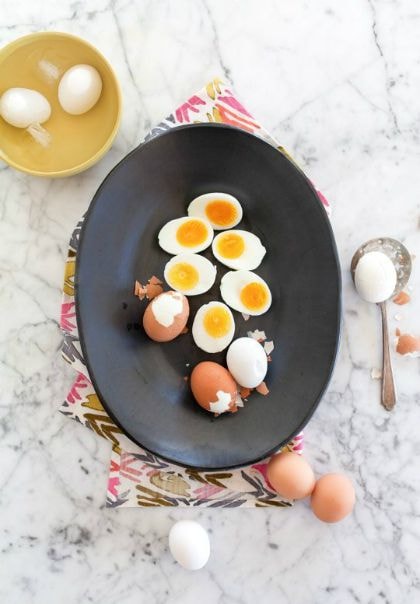5 common mistakes when boiling eggs
Boiled eggs sound very simple but to boil a delicious egg is not easy at all.
1. Using the wrong pot size
Don’t try to cram too many eggs into one pot. Not only will this cause the eggs to cook unevenly, it also risks cracking them. Use a pot that is the right size for the number of eggs you are cooking. The eggs should be in a single layer and have enough room to move around.
2. Boil with boiling water
If you usually boil eggs in a pot of hot water, stop immediately. Boiled eggs should be cooked in cool water. When the water and egg temperatures are the same, it will cook the eggs well and prevent cracking.
 |
3. Use fresh eggs
Eggs can be difficult to peel because they are too fresh to boil. So, for boiled eggs, use older eggs. This is because as eggs age, they lose moisture through the tiny pores in the shell and the air pockets at the top of larger eggs. In addition, the pH of the shell increases as it ages, making it easier to peel. You should buy eggs one to two weeks before eating them and store them in the refrigerator.
4. Boiling eggs for too long
Have you ever peeled a hard-boiled egg and noticed that the yolk has greenish-gray streaks? A sulfurous smell? A rubbery white color? These are all signs of an overcooked egg. To properly boil an egg, place it in a pot, cover it with water, and bring it to a boil. Then turn off the heat and let it sit for 10 minutes for a soft-boiled egg, or 15 minutes if you want it hard-boiled.
5. Do not soak in cold water
In theory, an egg should be cooked properly if it is boiled for the right amount of time and then taken out. But in reality, even if you take the egg out of the hot water, it will still be hot and will cause the egg to overcook. So as soon as it is done boiling, put the egg in a bowl of water and let it cool completely. This also makes it easier to peel the egg.
According to Gia dinh.net






